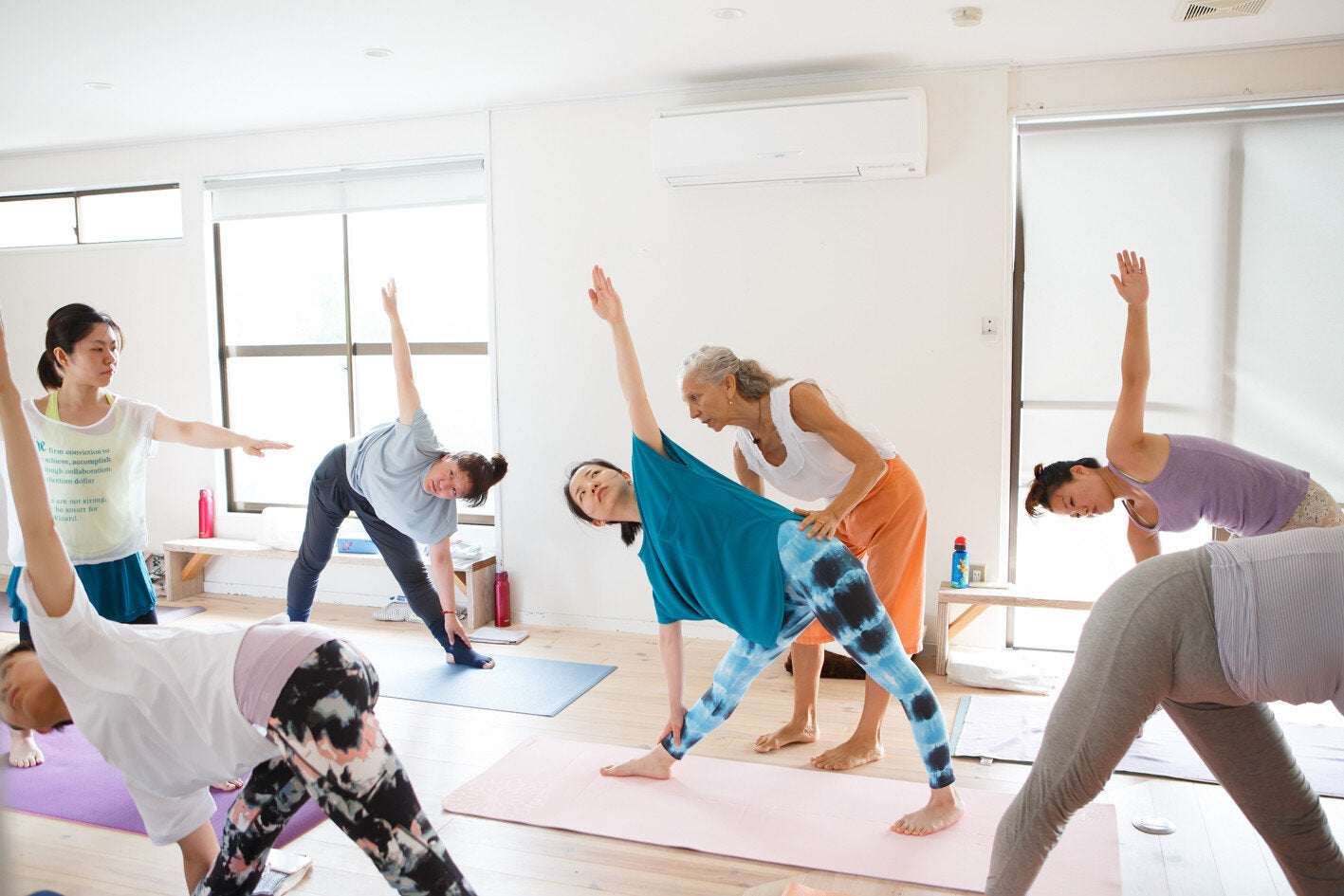
One of my favorite parts of leading our Yoga and Ayurveda teacher trainings is watching our students undergo incredible transformations. Every person is a little different, but after seeing hundreds of these transformations, I find that those who undergo the greatest shifts approach their learning without expectations. They look at their time with us as an experience that will lead them to their next step, even if that step isn’t quite clear at the beginning. They come with a willingness to let go of what they think they know, and emerge a more refined version of who they really are.
There is another big difference in these students -- they realize that learning is not just something they do in a training; it is a way of living. If you are studying Ayurveda and Yoga, or simply want to enjoy more out of life, this approach is the best way to see how deep the healing can be.
The path to mastery
When students graduate from our Yoga teacher training or our Ayurvedic health counselor program, I remind them that this is not the end of their studies. This is not to push them to seek out a long list of certifications in different practices as many people are drawn to do, but to encourage them to go deeply into what they have learned. This is the path to mastery, and it is much more fulfilling than trying to do it all.
Immersing yourself in your studies is not just about reading a shelf full of books or getting a certificate. Your intellect will never lead you to intuitively understand Ayurveda and Yoga, nor will it allow you to teach these practices from an authentic place if that is your goal. The best way to learn is to live it. Live the principles of Ayurveda and Yoga every single day of your life (this is possible even if you have a “day job”) and you will know them without effort.
This style of learning by living is especially important if your aim is to teach or counsel clients. You can only guide someone to a place where you have gone yourself. When you have done the work to release attachment to the coffee habit that aggravated pitta and vata for so many years, you will be more capable of assisting another person to do the same. If you know how to adjust the styles of cooking based on your dosha balance, you will be able to support your students from your daily personal experience.
How to choose a teacher
Not so long ago people learned by apprenticeship, which meant developing a lifelong commitment to a path of study. That came from developing a relationship with a teacher, one that unfolded as each person grew and learned. I believe this is the best model to gain deep understanding.
In the traditional style of Ayurveda and Yoga, students would dedicate themselves to a teacher and one set of practices for a time. After working closely with a teacher, the student would return home and continue with their personal practice. Here, the teachings would unfold, taking the student into a better understanding of who they are, their dharma and their true nature. When the student was ready for the next step, they would return for more training.
This manner of learning allows the student to own his or her education by avoiding the traps of parroting the teacher or trying to do things “right.” This is a worthy model to follow, but you must choose your teachers wisely for it to be effective.
I sought out my teachers based on the values I wanted to bring into my own life. The best ones were committed to their personal practices and lived the principles they shared with their students. They taught through connection to the divine, not by memorizing the texts. And, most importantly, they saw that they were on a lifelong course of self-discovery, a path that unfolded as a result of their teaching, not in spite of it.
When you work with your teachers, respect the wisdom they are sharing, but don’t take everything you learn as truth without trying it on for yourself (even if it comes from me). Put the teachings into practice in your own life. If they are in alignment with your path, you will feel more open. If they feel like they don’t fit, pause before you reject them outright. Go within and explore this question: Does this teaching rub up against some part of your life that you are resistant to changing? If your response comes with emotional charge, it is a sign that you should go toward this teaching and not away.
Accessing your personal power
Your teachers are here to help you grow as a human and a spirit. Be grateful for what they are sharing and the lineage of teachers who shared it with them. Honor the path they have walked before you, just be sure not to give them your personal power. A true teacher will not ask for it.
When people give up their power to a teacher, meaning, they become unable to think for themselves, it is because they lack a sense of who they are. This often comes from an underdeveloped sahasrara (crown) chakra. This chakra is the connection between your higher self and your body. When it is strong, you have clarity about your direction in life. You can make decisions for yourself and have few problems devoting yourself to a course of study or a teacher because you can easily distinguish your truth from another person’s.
Many of us weren’t taught to think for ourselves, so making conscious efforts to do so will shift your life in incredible ways. You can strengthen this ability by limiting your exposure to mass media, meditating daily (try our guided meditation on accessing your personal power) and including matsyasana in your Yoga practice, a pose that brings awareness to sahasrara chakra. Commit to listening to your internal wisdom and you’ll be rewarded with more confidence and a greater sense of self.
Be a lifelong student
The study of Ayurveda and Yoga is limitless. I am still amazed at what I learn after nearly three decades as a student. Much of this unfolding happens in my personal daily practice. As my awareness expands, so does my patience and determination to learn.
Allow your course of study to reveal itself naturally. Set intentions, but don’t become attached to the path you expect to walk. There is a good chance it will not look the way you planned. It’s okay if you don’t have all the answers right now. You have many lifetimes to learn. Go deeply, slowly and with great reverence for what is opening before you.
We offer mentoring at Hale Pule to support your ongoing studies. Contact us to learn more.
